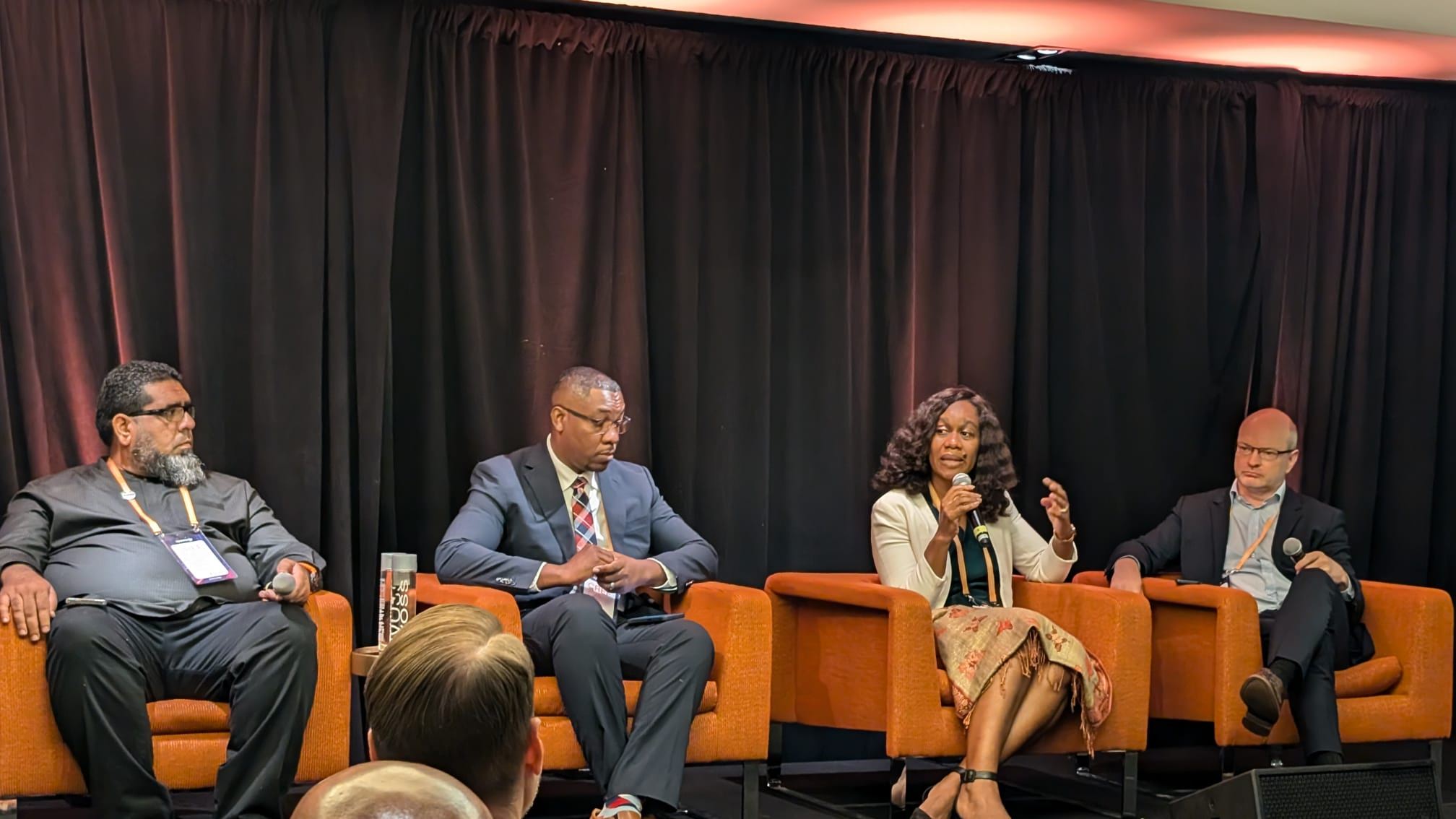
OECS Commission champions renewable energy capacity building at 17th Caribbean Renewable Energy Forum (CREF 2025)
OECS MEDIA RELEASE
The Organisation of Eastern Caribbean States (OECS) is stepping up efforts to build a cleaner, more sustainable energy future for its Member States. At the 17th Caribbean Renewable Energy Forum (CREF), held in Miami from May 7–9, the OECS showcased its commitment to advancing renewable energy across the region.
The event brought together energy leaders, policymakers, and innovators from across the Caribbean to accelerate the shift away from fossil fuels and toward more affordable, reliable, and climate-resilient energy solutions.

Training for the energy transition
A major highlight was a hands-on training session led by the OECS Sustainable Energy Unit on Photovoltaic (PV) System Impact and Hosting Capacity Studies - an essential tool to help utility companies better plan for solar energy on national power grids. Supported by the German development agency GIZ and the EU’s Euroclima programme, the training equipped participants from six OECS utilities with the technical know-how to integrate solar power efficiently and safely.
Kyle Farnum, Programme Director - Energy with the EU Delegation to Barbados, the Eastern Caribbean States, the OECS and CARICOM/CARIFORUM said:
“The European Union is proud to support the OECS in advancing its renewable energy transition through targeted technical training and regional cooperation. This PV system integration training under the Euroclima programme reflects our commitment to building resilient energy systems that are both sustainable and people-centred. By partnering with the OECS and regional utilities, we are not only exchanging expertise but also co-creating solutions that will enable greater renewable energy uptake and energy security across the Caribbean.”

Pooled procurement: A smart strategy for small states
OECS Sustainable Energy Programme Director, Judith Ephraim-Schmidt, also contributed to a panel discussion on regional pooled procurement, a strategy that allows small countries to combine their buying power to reduce costs and improve access to renewable energy technologies. Drawing parallels from the OECS’s successful pooled pharmaceutical purchasing, Ephraim-Schmidt underscored the potential to replicate this model for clean energy.
“Regional collaboration is how we turn our size into strength,” she noted. “By working together, we make renewable energy more affordable and accessible for all our people.”

Geothermal Power: A game-changer for the Eastern Caribbean
The OECS delegation also played a leading role in discussions on geothermal energy, highlighting its potential to deliver stable, low-cost electricity across the region. Significant progress was reported in Dominica, Saint Kitts and Nevis, and Grenada—with new drilling and exploration projects on the horizon.
Grenada’s Minister of Climate Resilience and Renewable Energy, Hon. Kerryne James, described the potential of a 15-megawatt geothermal plant to meet 40% of the country’s energy needs, dramatically reducing costs for households and businesses.
She praised the OECS’ GEOBUILD programme, which supports geothermal development through knowledge-sharing and technical assistance:
“The GEOBUILD project... has been giving us the advantage and the environment for us to learn and grow from our regional partners... It has the potential of giving us not only energy security (but) the opportunity to redefine regional integration [and] redefine how we collaborate amongst ourselves in the region.”

OECS Decade of Action for Energy
These initiatives form part of the OECS Decade of Action for Sustainable Energy Development (2025–2035), launched earlier this year through the Basseterre Declaration. The Decade of Action aims to ensure that every OECS citizen has access to clean, affordable, and reliable energy—whether from the sun, wind, earth, or green hydrogen.
Benefits for the region include:
- Lower energy bills
- More local jobs
- Reduced dependence on imported fuel
- Stronger resilience to climate and economic shocks
The OECS Commission remains committed to helping its Member States build a future that is energy-secure, environmentally responsible, and economically inclusive.








OECS Communications Unit